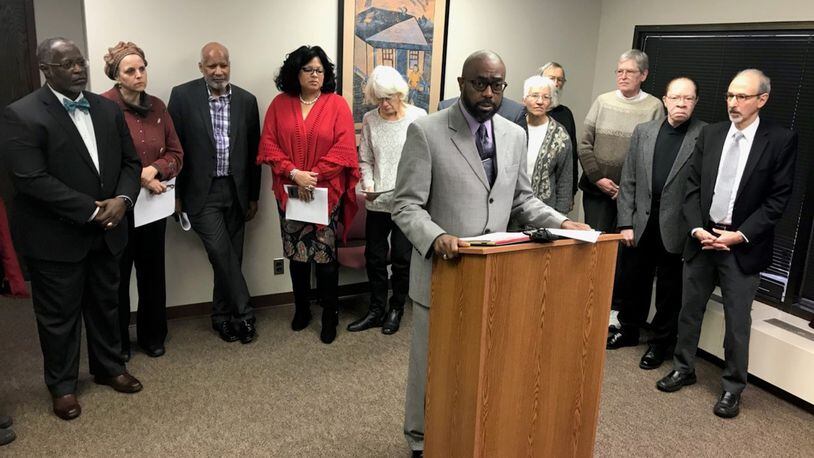MORE: Health system, which owns Premier Health stake, close to mega-merger
“In fact, Premier has no such medical facilities in the African American community. It has left that community a health care desert,” the complaint states.
The complaint notes that rural Jamestown, with 2,000 mostly white residents, has a freestanding emergency department and other medical services through Premier Health. The clergy announced the expanded complaint Thursday from the offices of their attorneys, Advocates for Basic Legal Equality.
Premier Health said in a statement that its expansion efforts are focused on areas of population growth and on adding outpatient services — which is where health care is shifting to. The company stated it continues to serve the urban core and still owns the facility where Five Rivers Health Centers continues to operate on the former Good Samaritan campus.
Premier said it supports Five Rivers, which lets patients pay on an income-based sliding fee scale, by contributing about $4.5 million each year for its residency program.
The original complaint filed in May is still being investigated by the Office of Civil Rights with the U.S. Department of Health and Human Services.
The investigators are gathering information and eventually will issue a decision on whether civil rights have been violated. If civil rights have been violated, the hospital would have to take corrective action or risk enforcement proceedings that could mean a loss of federal funding, which includes Medicaid and Medicare.
MORE: Empty beds more common in area hospitals
The original civil rights complaint was filed in May after Premier said it couldn't justify having two hospitals in a city with a declining population and declining demand for inpatient services.
The clergy claim the closing of the 2222 Philadelphia Drive hospital will harm a majority black service area through the loss of maternity services, the ER and other major medical services, and would be in violation of the Civil Rights Act and the Affordable Care Act.
Premier Health had previously said that the health network “has been mindful of the community’s concerns from the very beginning of this process and has remained true to its mission throughout this transition.”
The health network leadership have said Good Samaritan’s buildings were inefficient and out-of-date.
MORE: Local hospital starting $70 million tower project
The clergy’s position is Premier should continue to provide major health care services at the Good Samaritan site or it should be maintained and made available to be transferred to another organization.
Premier, CityWide Development and a planning firm called Planning NEXT are creating an outline for the redevelopment of the site and plan to tear down the hospital into a cleared site. Premier has pledged $10 million toward the site’s redevelopment.
When seeking community feedback for what should go on the former hospital site, one of the top categories of responses was for health care services, but the guidelines Premier set up for the process restrict the kind of health services allowed. Premier has also said if it transfers the property, the health network would deed restrict the property to prevent a future user from having inpatient beds.
MORE: Even with new offices coming, CareSource decides to keep space in another downtown building
Premier has also previously said that patients and employees from the neighborhoods around Good Samaritan area are already coming to Miami Valley Hospital, which shows there will still be access to hospital jobs and services.
The clergy have criticized the hospital closing as not only a loss of health care services but also another economic blow to the surrounding neighborhoods. When the closing announcement was made in January, the hospital employed 1,600 people on the main campus.
The Rev. Rockney Carter of Zion Baptist Church said there are people in the community who are marginalized and feel hopeless.
“It’s so overwhelming, they don’t feel a sense of being able to win. So what we’re trying to do with rallies and town halls is trying to galvanize and unite the community, because it is going to take the efforts of the community to turn Premier around,” Carter said.
About the Author
